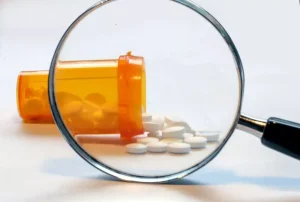Notice: Trying to access array offset on value of type null in /srv/pobeda.altspu.ru/wp-content/plugins/wp-recall/functions/frontend.php on line 698

Have group members write down a list of positive affirmations about themselves starting with “I am.” Examples include “I am compassionate” or “I am enough.” They will share their affirmations with other group members. In this activity, the group identifies and discusses common triggers for their particular loss (what stimulates negative emotions such as sadness). Group members and leaders can then suggest different coping strategies they could use when feeling triggered. A sheet of paper is passed out to each member, and they will write their name on the sheet. The paper is passed around so that other members can write positive affirmations directed to the member.
- A 1-page worksheet for examining past substance use relapses and strategies for avoiding future relapses.
- An example would be to have group members individually draw or paint to the sound of music in a way that depicts their personal story for a specified amount of time.
- You can prepare for these situations by roleplaying as a group therapy activity.
- Practicing mindfulness and meditation techniques during the process of recovery groups can enhance participants’ self-awareness and emotional intelligence.
- Group members can then discuss their favorite scents and the feelings they provide.
Cognitive Restructuring Activity

Experiential therapy is client-centered and interventions should be linked to a person’s preferences. There are a variety of experiential therapy activities that can be used such as animal-assisted therapy, acting and role-playing, arts and crafts, music and dance and guided imagery techniques. At the start, it might be difficult to let people open up in front of group members but once this activity starts, it creates a symphony around. Recognize and harness the power of group support and connection in helping individuals address and overcome mental health challenges.
HealingUS Communities
Calusa Recovery’s focus on active living stems from the founders’ combined experiences navigating the difficult path of recovery on both a personal and professional level. The founders are dedicated to helping clients find their path to long-lasting recovery because they have triumphed over their challenges and helped countless others achieve success. Clients design both outer – what the world sees – and inner – the hidden self – masks.
Mindfulness Activities for Your Group Sessions

Use the top layer to write three things about how you feel right now, use the middle layer for three ways you felt in the past, and use the bottom layer to “guess” at the deep feelings you try to hide from yourself. Make it clear that participants do not have to share anything they write, so they’ll feel free to explore potentially surprising emotions. Ask group members to introduce themselves by sharing three weird, funny, or interesting things about themselves as an “ice breaker” for one of your addiction recovery support group activities, .

Mindfulness-Based Addiction Treatment At Oasis Recovery
Reasons for declining to participate in accelerometery data collection will be documented if offered. Substance Abuse is one of the most prominent group therapy topics for mental health. In substance abuse discussions, psychotherapists help addicted people learn more about their triggers and what might contribute to engaging in such activities. The most recent data from the 2022 NSDUH shows group therapy activities for adults in recovery trends in substance use and mental health among the U.S. population aged 12 and older, including indicators of substance use and mental health at a national level. In today’s world, where mental health issues affect approximately 1 in 4 people globally (as per a report by WHO), group therapy has become a powerful tool for individuals seeking support, understanding, and connection.
Try Role-Playing Exercises
From there, the worksheet can be used to build a stress management plan. A 5-page template for creating a substance use relapse prevention plan. A 1-page worksheet for examining past substance use relapses and strategies for avoiding future relapses. A 2-page handout that describes seven uncommon grief experiences, such as delayed or disenfranchised grief. A list with links to online grief support groups, forums, and communities. A 2-page handout with journal prompts for recovery, based on material from The Sober Survival Guide (created with the author’s permission).

Below is a list of therapy topics and themes that may be used during group therapy for substance use disorders. Although the list is comprehensive, it is by no means a complete list of every topic or theme that may be touched upon during treatment. This article will cover what group therapy is and some of the more common types of group therapy and activities used for addiction treatment. Avoid power struggles at all costs, especially when a client challenges the benefits of treatment.
- Experiential family therapy helps to examine the patterns of interaction amongst family members.
- Addiction recovery group activities are wonderful tools for achieving and maintaining successful, long-term sobriety.
- This can lead to a powerful discussion about image, reputation, feeling fake, etc.
- Reasons for ineligibility will be documented together with reasons volunteered by potential participants for declining to do so.
- This is an effective group activity for both anxiety and depression once a (closed) group has been a cohesive unit for several weekly sessions.
- Learning to be present and mindful is a vital part of the recovery process.
Have the group identify and discuss common triggers for substance abuse. Suggest different coping strategies they could use to stay sober when triggered. But of all the different treatment methods, support groups may be one of the most valuable for both the treatment process itself and continued recovery post-treatment. Exercise adherence (Exercise Adherence Rating Scale) for the OUTDOOR intervention arm will be assessed at six- and 12- weeks [37].
- Have group members write down a list of positive affirmations about themselves starting with “I am.” Examples include “I am compassionate” or “I am enough.” They will share their affirmations with other group members.
- They are a form of group therapy available free of charge all over the world, with no membership requirements (other than the desire to lead a life free of substance abuse).
- The activities should reflect the goals and composition of group members as well as the theoretical approach used by the group leader or therapist.
- Experiential therapy is client-centered and interventions should be linked to a person’s preferences.
- Group discussions can help people come up with or expand upon goals they want to achieve during recovery, such as getting to a sobriety milestone or landing a new job.
- By practicing mindfulness, individuals with substance use disorders can find healthy coping skills and ground themselves without turning to alcohol, drugs, or other bad habits to relieve anxiety, fear, and depression.